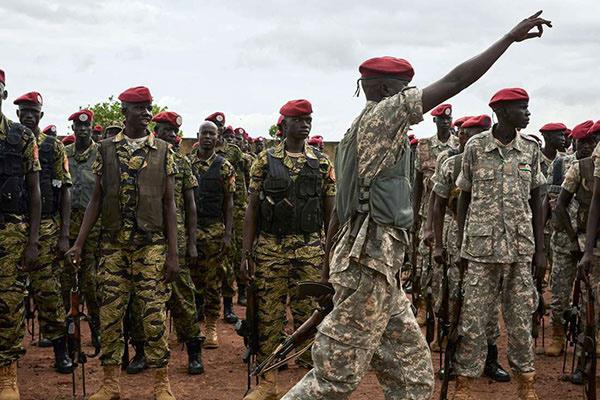You are here
Six months too few to form South Sudan unity government— president
By AFP - May 08,2019 - Last updated at May 08,2019
JUBA — South Sudan’s President Salva Kiir said on Wednesday that a six-month delay agreed with his rivals for the formation of a unity government was not enough time to resolve outstanding issues.
Warring parties in a civil conflict that is now in its sixth year, agreed on Friday to delay the formation of a power-sharing government from May 12 for six months, after implementation of a peace deal ran aground.
Kiir’s main rival, his former vice president Riek Machar, had pushed for the delay, while Kiir wanted to move forward with the unity government and deal with outstanding issues later.
However the president said even the extension would not be enough to resolve sticky issues such as creating a unified army and agreeing on state boundaries.
“If we cannot do them in the last eight months, what will make this succeed this time around in six months?” Kiir told officials while launching the country’s new civil registry.
“I told my team [in Addis Ababa]... that instead of six months, let us call for a one-year delay,” due to seasonal rains from May to November which make the country’s largely dirt roads impassable.
Kiir accused Machar of continuing to recruit fighters during a ceasefire which has largely held since a peace deal was signed in September.
“He is now recruiting and this recruitment is prohibited in the agreement and if it is a matter of recruitment, it does not cost me much to also recruit,” he said.
The United Nations has accused all sides of continuing to recruit fighters.
South Sudan’s war broke out in 2013, two years after it gained independence, after Kiir accused his Machar of plotting a coup against him.
The fighting has left 380,000 people dead and forced more than 4 million South Sudanese — almost a third of the population — to flee their homes. Numerous attempts to restore peace have failed.
Lack of political will
Questions have mounted over Kiir’s political will to implement the peace deal.
It emerged last week he had hired an American lobby firm to block the formation of a hybrid African Union-South Sudan court to try war crimes, stipulated in the peace agreement.
A statement by the International Crisis Group on Wednesday said the status quo was convenient for both sides.
“The government has little incentive to execute a power-sharing arrangement that, by definition, will dilute its authority,” said the statement.
Meanwhile Machar appears to want to use the planned cantonment process — under which both sides’ armed groups are to be assembled and later integrated in a new, unified army — “as an opportunity to regroup and bankroll his fighting force”.
The Crisis Group said that for the next six months to be more productive than the last eight, rival sides would have to agree on what needs to be implemented before the formation of the new government.
Machar is insisting he will only return from exile once the cantonment process has been completed.
“A unity government preconditioned on a broader reform of the army and the integration of Machar’s disparate armed groups — many of which are likely to resist such a move — might never be formed,” said the statement.
The Crisis Group also called for better co-ordination among outside actors after the ouster of the accord’s main broker Omar Al Bashir, which has left a “diplomatic vacuum”.
Related Articles
JUBA — South Sudan’s armed forces and rebels were ordered on Friday to report to military camps, a much-awaited step towards creating a
NAIROBI — South Sudan’s six-month-old peace deal is doomed to collapse unless the sides can settle a string of disputes and bring forme
PANTIT, South Sudan — Hundreds of South Sudan opposition fighters are leaving cantonment sites set up to register and train t

















